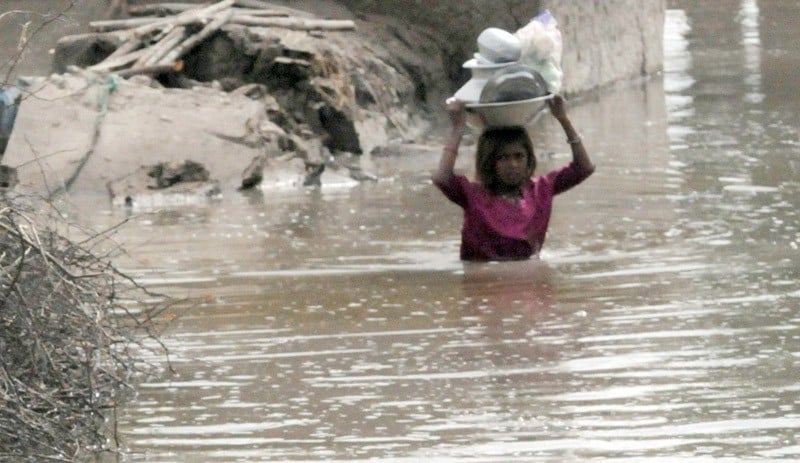
If not tackled immediately, climate change can lead to extreme poverty

Pakistan has suffered $20 billion losses due to the adverse effects of climate change, as per government estimates. By 2040, according to World Wildlife Fund (WWF), up to 10 per cent of Pakistan’s agricultural output would be affected.
Globally, climate change could force an additional 100 million people to live in extreme poverty by 2030, warns World Bank in a recent report. In Pakistan, climate change could reduce the income of the bottom 40 per cent people by more than eight per cent.
Climate change could make it more difficult to produce crops, and crop reductions could push food prices up, leading to extreme poverty in most countries. However, the severity of poverty impacts will vary among countries -- with Pakistan, Guatemala, Sri Lanka, Tajikistan and Yemen among the worst hit.
Poor people lose more when a natural disaster strikes. In addition to crops and seed reserves, disasters can also destroy productive assets in agricultural communities and spark food prices shocks, as occurred after the unprecedented 2010 floods in Pakistan which destroyed 2.1 million hectares of agricultural land, decimating production and sending prices of wheat upward. After the floods, incidence of infectious diseases and diarrhoea also increased, as the floods affected the quality of water and also interrupted the ongoing efforts to eradicate polio.
To cope with havocs caused by the climate change, the government of Pakistan approved the National Climate Change Policy in 2012, but there has been no concrete progress on that front so far. Meanwhile, the affected communities and people continue to suffer. For instance, this year, Karachiites had to brave heatwave, Chitralis flooding caused by glacier melt and tourists to Naran sudden and unprecedented early snowfall that blocked entry and exit routes to Naran. In a debate in the Senate of Pakistan, on November 10, the Senators questioned the civil departments’ capabilities to cope with natural disasters.
At the global level, warming could increase up to 2.3 C by 2030, which will also increase the number of affected people by five per cent and diarrhoea by 10 per cent.
"We have the ability to end extreme poverty even in the face of climate change," says John Roome, Senior Director for Climate Change Group at the World Bank, "but to succeed, climate considerations need to be integrated into development work." He warns: "And we will need to act fast, because as climate impacts increase, so will the difficulty and cost of eradicating poverty."
According to WHO chief Michel Jarraud: "Concentration of greenhouse gases in the atmosphere is now reaching alarming levels. This means we are now really in unchartered territory for the human race…. We will soon be living with globally averaged CO2 levels above 400 parts per million as a permanent reality…. We cannot see CO2. It is an invisible threat, but a very real one…. It means hotter global temperature, more extreme weather events, like heatwaves and floods, melting ice, rising sea levels, and increased acidity of the oceans," he added.
The Paris summit is holding talks among some 195 nations from November 30, 2015 to December 11, 2015 to seek commitments to cuts in emissions so as to limit heatwaves, floods and rising seas. In view of this forum’s importance, which will have a great bearing on the future and continued development of nations, leaders of many countries participate in COP moots. However, that is not the case with Pakistan.
As many elements of the Paris COP21 are of particular importance to Pakistan, knowledgeable circles demand Pakistan’s participation at a high level in this event.